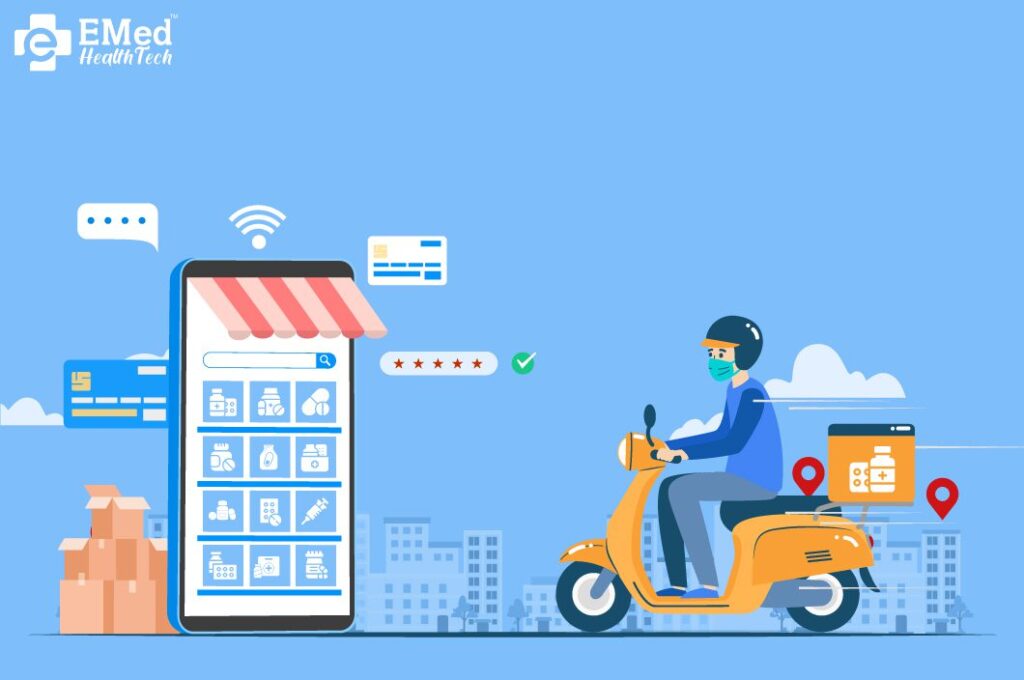Artificial intelligence (AI) and big data are transforming many industries, and medicine delivery logistics is no exception. Efficient delivery of medication is critical, especially in healthcare, where delays can affect patient outcomes.
As the demand for faster, more reliable medicine delivery services increases, businesses must find innovative ways to optimize their logistics. AI and big data offer solutions to many of the challenges in medicine delivery, improving everything from route planning to inventory management.
In this article, we’ll explore how AI and big data can enhance the efficiency of medicine delivery logistics and why their adoption is essential for businesses in this space.
Understanding the Role of AI in Medicine Delivery
AI uses algorithms and machine learning to analyze data and make predictions. It enables systems to learn from experience and continuously improve over time. In medicine delivery logistics, AI is applied to solve a range of problems, from predicting delivery times to optimizing delivery routes.
Some key applications of AI in medicine delivery include:
- Route Optimization: AI can help identify the most efficient delivery routes by analyzing traffic patterns, weather conditions, and other real-time factors. This not only reduces delivery times but also minimizes fuel consumption, leading to cost savings.
- Demand Forecasting: AI can predict demand for specific medicines based on historical data, current trends, and regional health conditions. This ensures that pharmacies and delivery services are always stocked with the right amount of medication, reducing shortages and overstocking.
- Automating Delivery Processes: From order processing to real-time delivery tracking, AI automates many logistical processes, reducing human error and increasing speed.
Big Data and Its Impact on Medicine Delivery Logistics
Big data refers to the vast volumes of data generated from various sources, including customer orders, delivery timings, inventory levels, and environmental factors. In medicine delivery logistics, big data helps businesses make informed decisions by analyzing large datasets for patterns and insights.
Here are some ways big data improves medicine delivery logistics:
- Predictive Analytics: By analyzing past delivery data, big data tools can predict potential delivery delays, helping businesses to proactively adjust their schedules. This ensures timely deliveries, particularly for critical medications.
- Inventory Management: Big data helps medicine delivery apps in US keep track of inventory levels in real time. By analyzing purchase trends, seasonal demands, and regional health data, businesses can ensure that they always have sufficient stock of essential medications.
- Customer Preferences: Big data also provides insights into customer preferences and behaviors. This allows businesses to personalize their services, such as offering faster delivery times or introducing subscription models based on customer demand.
How AI and Big Data Work Together in Medicine Delivery
When AI and big data are combined, they provide powerful solutions that can drastically improve the efficiency of medicine delivery logistics. Here’s how they work together:
- Enhanced Decision Making: AI algorithms can process the large amounts of data generated by delivery services and use it to make informed decisions. For example, by analyzing traffic data and weather patterns, AI can suggest the best delivery routes in real time, reducing delays.
- Real-Time Monitoring and Adjustments: AI, combined with big data, allows for real-time monitoring of deliveries. Businesses can track their delivery vehicles, monitor environmental conditions, and make adjustments on the go. This level of real-time tracking and adjustment ensures that medicines are delivered promptly and safely.
- Data-Driven Improvements: With the insights gained from big data, AI systems can continuously improve over time. For example, an AI system can learn from delivery patterns and adjust routes, timings, and inventory levels to optimize the entire process. This ensures a more efficient and responsive system.
Case Studies of AI and Big Data in Medicine Delivery
Several companies have already started using AI and big data to improve their medicine delivery logistics. Here are a few examples:
- Amazon Pharmacy: Amazon uses AI to optimize delivery routes and predict customer demand. By analyzing vast amounts of data from its e-commerce platform, Amazon can ensure timely delivery of medications while keeping costs down.
- Walgreens: Walgreens uses big data analytics to manage its inventory and ensure that its pharmacies are stocked with the right medications at the right time. By analyzing trends in prescription data and regional health issues, Walgreens can predict demand and avoid stockouts.
- Capsule: Capsule is a New York-based digital pharmacy that uses AI and big data to provide same-day medication delivery. By analyzing real-time data on traffic and customer locations, Capsule ensures that medications are delivered quickly and efficiently, without delays.
Benefits of Using AI and Big Data in Medicine Delivery Logistics
Using AI and big data in medicine delivery logistics comes with several advantages, including:
- Faster Delivery Times: AI helps delivery companies optimize their routes and schedules, leading to faster delivery times. This is especially important for medications, where timely delivery is crucial.
- Cost Reduction: Optimized delivery routes, better inventory management, and reduced wastage all lead to significant cost savings for delivery companies and pharmacies.
- Improved Accuracy: AI and big data reduce human errors by automating many logistical processes. From ensuring the right medication is delivered to tracking inventory levels, businesses can achieve greater accuracy.
- Better Customer Experience: By using AI to track customer preferences and big data to analyze customer behavior, businesses can offer a more personalized service, improving customer satisfaction.
Challenges of Implementing AI and Big Data in Medicine Delivery
While AI and big data offer numerous benefits, their implementation comes with challenges:
- Data Privacy Concerns: Handling sensitive patient data requires strict compliance with privacy laws such as HIPAA in the USA. Companies must ensure that they have robust data security measures in place to protect customer information.
- High Initial Costs: The adoption of AI and big data technologies requires significant investment in infrastructure, software, and training. While the long-term benefits are substantial, small businesses may find the initial costs prohibitive.
- Complex Integration: Integrating third party apps and big data tools into existing logistical systems can be complex. Businesses must ensure that their new systems are compatible with their existing operations, which can require substantial technical expertise.
Future of AI and Big Data in Medicine Delivery
As AI and big data technologies continue to evolve, their impact on medicine delivery logistics will only grow. Innovations such as drone deliveries and autonomous vehicles, driven by AI, are already being tested and could soon become commonplace in medicine delivery. In addition, the increasing availability of real-time data will allow for even more efficient delivery systems, reducing costs and improving service levels.
In the future, AI and big data may also help improve the environmental impact of medicine delivery. By optimizing routes and reducing fuel consumption, these technologies can contribute to more sustainable delivery practices.
Conclusion
AI and big data are revolutionizing medicine delivery logistics by improving efficiency, reducing costs, and enhancing customer satisfaction. From optimizing delivery routes to managing inventory levels, these technologies provide powerful tools that enable businesses to meet the growing demand for fast, reliable medicine delivery services.
As the industry continues to adopt AI and big data solutions, we can expect to see even greater improvements in medicine delivery logistics, benefiting both businesses and customers alike



